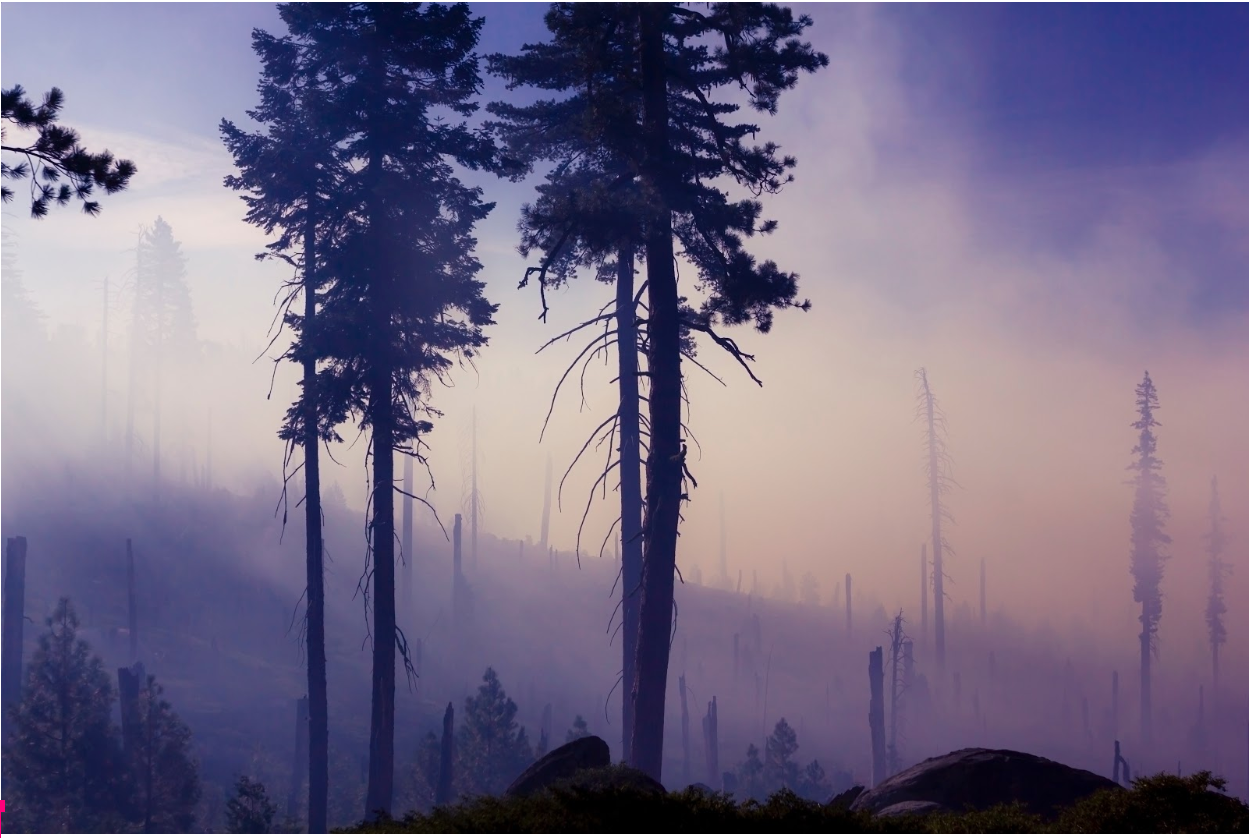5 Strategies for Breathing Safely During a Wildfire
Protect your lungs during a Wildfire to prevent air pollution

Crooners like The Platters may sing about smoke getting in your eyes, but there is nothing romantic about wildfire smoke and its impact on the surrounding areas. When you are breathing air even a few miles away from a wildfire, you absorb fine ash, dangerous chemicals like formaldehyde, and very small particles of smoke that are sometimes odorless.
When breathing wildfire smoke directly, these particles can damage the cilia in your lungs that filter air for your body. Breathing wildfire smoke, in particular, can quickly cause long-term health damage, including greater risks of cancer and exacerbated difficulty breathing especially for people with asthma and other air-sensitive groups.
Unfortunately, the spread of wildfire smoke is often over a vast area and avoiding the smoke is sometimes impossible, thankfully, there are ways to protect yourself! Read on to learn some of the ways that people keep their lungs healthier and cleaner even when the air outside is hazy with smoke.
Respirator Masks

A very special kind of face mask that is certified as capable of filtering smoke, respirator masks like the N95 and N100 are designed to provide some smoke filtration, according to the Washington State Department of Health. It is important that the mask fits well, has two straps to seal it to your face as much as possible. Most of these types of masks are suitable for going outdoors for brief amounts of time.
Full-Face Respirators

To combine the power of a respirator mask with eye protection, air-purifying respirators that cover the whole face can protect more thoroughly than respirator masks alone and also keep smoke out of one's eyes. The downside is that these are bulky masks that severely limit your field of view. If you are in the midst of evacuating and can barely see due to smoke these could be a lifesaver, but if you away from the worst of the fires these aren’t as practical as some of the other solutions and are most helpful for firefighters themselves.
Inhalers and Breathing Aids
While these will not protect your lungs from harm, keeping a prescription inhaler or other breathing aids with you is even more important during wildfire season. Talk to your doctor if you are living in an area prone to wildfires about any extra precautions you should take if you suffer from allergies or asthma already.

DIY Air Filtration
To quickly remove smoke from the air, some clever folks strapped a furnace filter to a regular box fan, pulling air through the fan and thus removing particulates. While inexpensive, these filters have limited use since the filter must be changed frequently and the filtration may not catch the smallest particles. However, if these two items are available to you and nothing else, it is definitely going to take some of the ash out of the air and help protect your health.
Portable Air Purifiers

Small, quiet air purifiers like Wynd keep your face mask-free while cleaning the air of even extremely small particles. The purifier is designed to let you know both the current air quality in your space with an attached tracker as well as the air outside via the app. A solution like a portable air purifier makes prolonged time in an area with wildfire smoke and ash much safer because it’s special filter is designed to clear the air of smoke and the fine particles that irritate your lungs causing you to cough.
Regardless of how you choose to protect yourself, it is important to know that surgical masks, typical dust masks, and simple masks you can buy at a hardware store are usually not capable of filtering out smoke particles. Wet towels and rags are also not recommended since smoke particles can also pass right through them. For more information on permanent solutions to personal air purification needs, visit our website.
